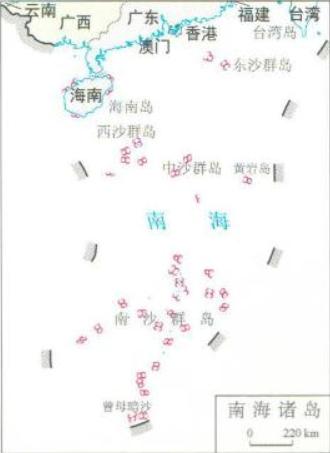The online map of crops affected by drought disaster in China in 2014 is from the Atlas of natural disasters in China in 2014, the book is edited by the National Disaster Reduction Commission Office, the Disaster relief Department of the Ministry of Civil Affairs, the National Disaster Reduction Center of Ministry of Civil Affairs, and is published by China Map Publishing House. The scale of this map is 1:22000000.
Online map of crops affected by drought disaster in China in 2014

The picture is connected with the map above.
General situation of drought disaster in China
In 2014, a total of 101.947 million people suffered from drought disasters in 23 provinces (autonomous regions and municipalities directly under the central government), 10.125 million people had difficulty drinking water, and 14.731 million people needed life assistance due to drought; The disaster area of crops was 12271.7 thousand hectares, including 1484.7 thousand hectares of no harvest; 11.572 million large livestock with difficulty in drinking water, and the direct economic loss is 83.56 billion yuan.
In 2014, drought disasters mainly showed the following characteristics:
1.Severe summer drought in the Huanghuai region of Northeast China due to less precipitation and high temperature
From June to August, the precipitation in most parts of the north is less, and the accumulated precipitation is only 100-400mm, among them, the Huanghuai River, the eastern part of North China, the southern part of Northeast China, and the north of the middle and lower reaches of the Yangtze River are 20-50% less, and the southern Liaoning and central Henan are more than 50% less. The average precipitation in Liaoning is 252.1 mm, which is the least since 1951; Henan 226.0 mm, second only to 207.9 mm in 1997. In addition, the temperature in most of the above-mentioned areas is 0.5-11 ℃ higher than that in recent years, and the precipitation continues to be less than that in recent years, the superposition of sunny, hot and high temperature results in serious water shortage in water systems and water conservancy projects, the water storage of reservoirs in Henan, Liaoning and Jilin is 10-40% less than that in the whole year, resulting in serious drought.
2.The key growth period of crops suffered from drought, and the situation of yield reduction was outstanding
The summer drought occurred in the southern part of the Northeast and parts of the Huanghuaihai Sea, which coincided with the jointing, heading, pollination, and filling of grain crops, fruits were in the fruit expansion stage, which was the most critical period for yield formation, the drought seriously affected the production and placement of farmland and fruit trees.
In addition, due to severely low precipitation and continuous high temperature, the soil moisture in mountainous counties is poor, coupled with the lack of irrigation facilities, large areas of crops wilt and die, resulting in more serious crop failures, the area of crop failure due to drought accounted for the country's crop failure due to drought 14.9% of the area.
3.Wide range of crops affected by drought, and large number of people to be rescued in winter and spring
In 2014, the drought affected 23 provinces (autonomous regions and municipalities directly under the central government) in North China, Northeast China, Northwest China, Huanghuai River, middle and lower reaches of the Yangtze River and southwest China, causing 122717 thousand hectares of crops to be affected, including 1484.7 thousand hectares of no harvest. In addition, due to the better soil moisture in the main grain producing areas in spring, farmers increased their input, while, the late drought resulted in crop yield reduction and even crop failure in summer and autumn, besides, it is basically impossible to replant other crops in the disaster area, resulting in a large number of people suffering from food difficulties; At the same time, affected by economic factors, the number of migrant workers of rural residents in 2014 decreased significantly compared with previous years, some farmers had no labor income, and their self-help ability was weak, the livelihood of farmers who depended on land was seriously affected, resulting in a large number of people who needed assistance in winter and spring.
Crop disaster:
The big yellow circle in the figure shows: Affected area.
The big red circle in the figure shows: Disaster area.
The small red circle in the figure shows: No harvest area.
The proportion of the disaster area in the sown area of the province (autonomous region, municipality directly under the central government)%:
The closer to the dark green area, the higher the proportion of the disaster area to the sown area of the province (autonomous region, municipality directly under the central government).
The closer to the light green area, the lower the proportion of the disaster area to the sown area of the province (autonomous region, municipality directly under the central government).
The white area in the figure shows: Non affected areas.
Online map of drought disaster distribution of China in 2014
Online map of people affected by drought disaster in China in 2014
Online map of economic losses of drought disasters in China in 2014
Comment list ( 0 )
